Nestled in the heart of Cappadocia, Göreme Open Air Museum is one of Turkey’s most remarkable historical sites. We visited it as part of a combined red and green full-day tour, which made it even more convenient to see this UNESCO World Heritage Site alongside other regional highlights. The museum is an extraordinary complex of rock-cut churches, chapels, monasteries, and dwellings, carved into the soft volcanic rock that characterizes the region. With an hour of free time to explore, we found ourselves immersed in a living museum that tells the story of Cappadocia's deep Christian heritage and unique geological wonders.
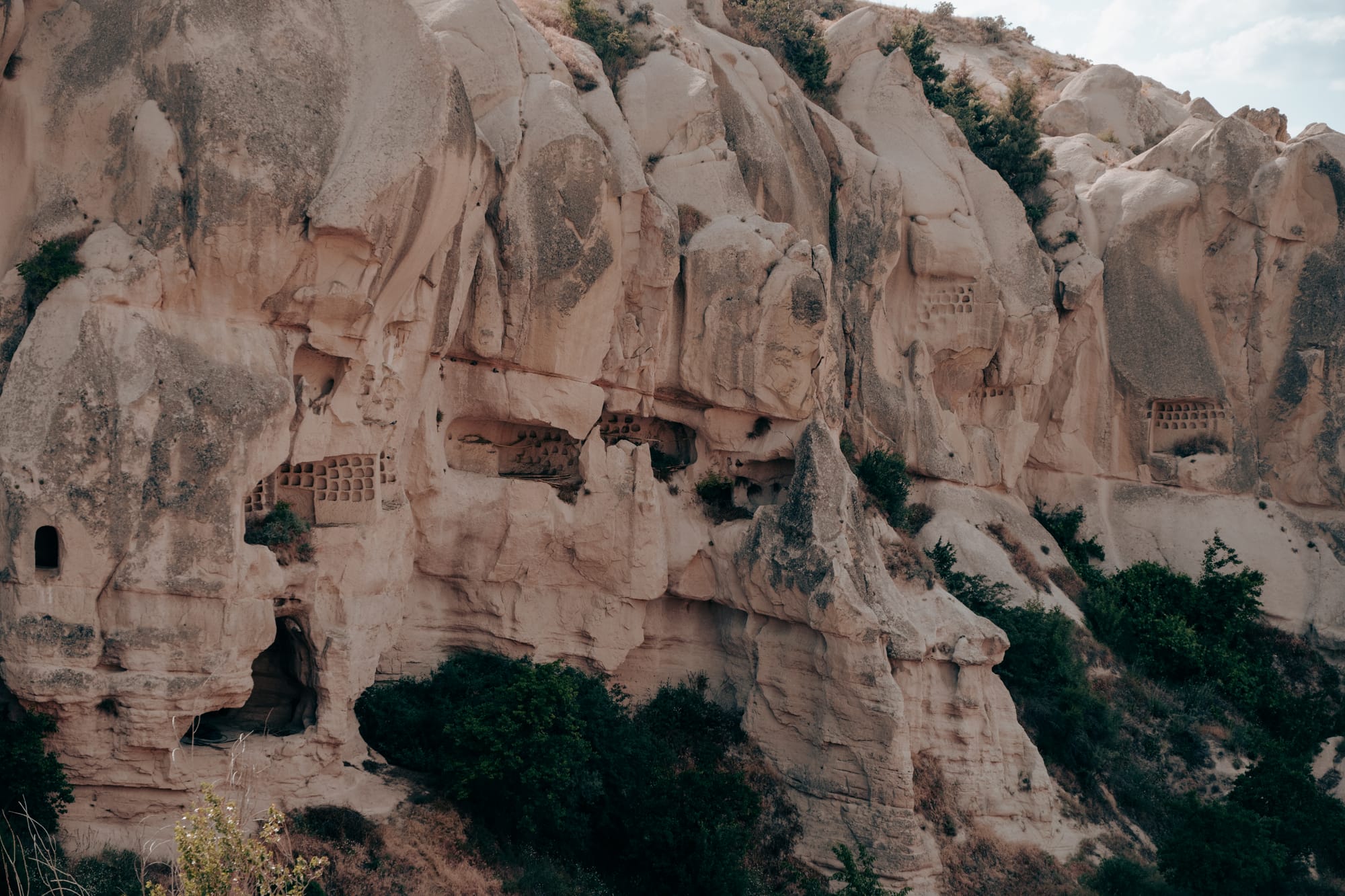
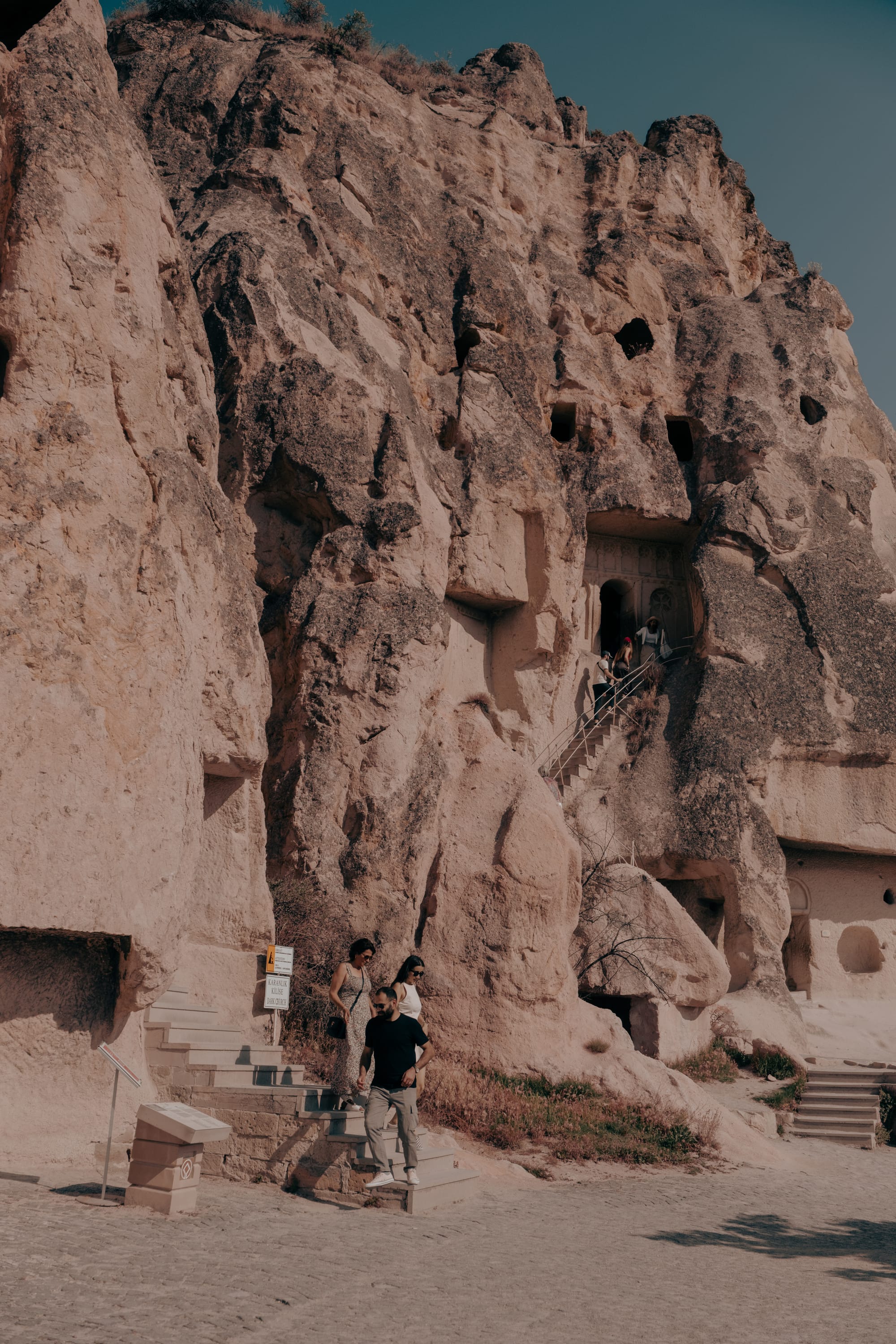
Rock formations with carved pigeon houses and visitors exploring cave entrances at Göreme Open Air Museum
If you’re considering a visit, we highly recommend booking the same combined Red and Green tour we did—it’s an excellent way to experience Göreme Open Air Museum and other Cappadocian highlights in a single, well-organized day.
A brief history of Göreme Open Air Museum
Göreme Open Air Museum’s origins date back to the 4th century, when Cappadocia became a safe haven for early Christians escaping Roman persecution. The region’s soft volcanic tuff made it possible to carve extensive cave systems, transforming the landscape into a labyrinth of dwellings, chapels, and monasteries. Over the following centuries, Göreme developed into a significant monastic center, where religious life thrived.
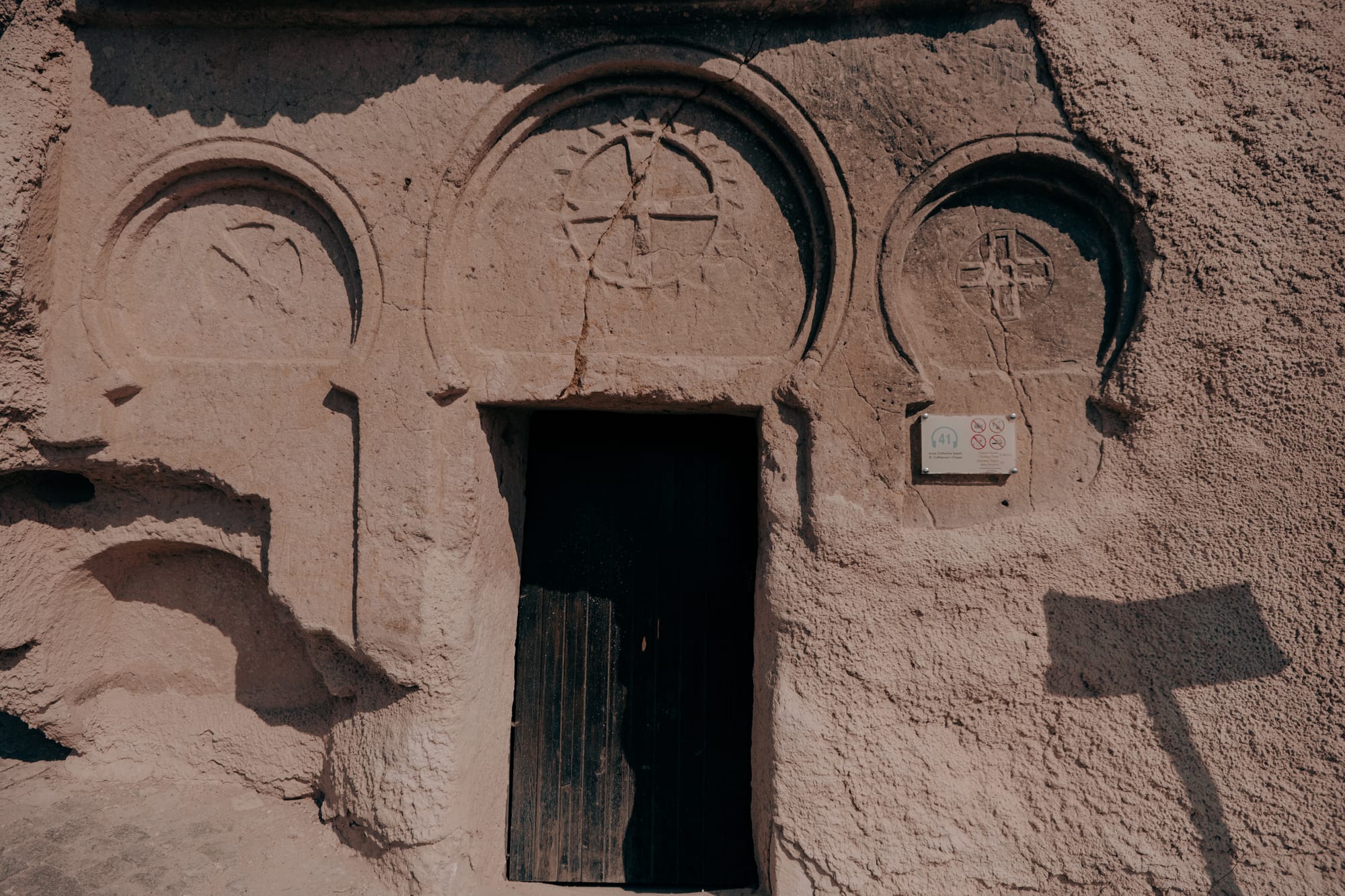
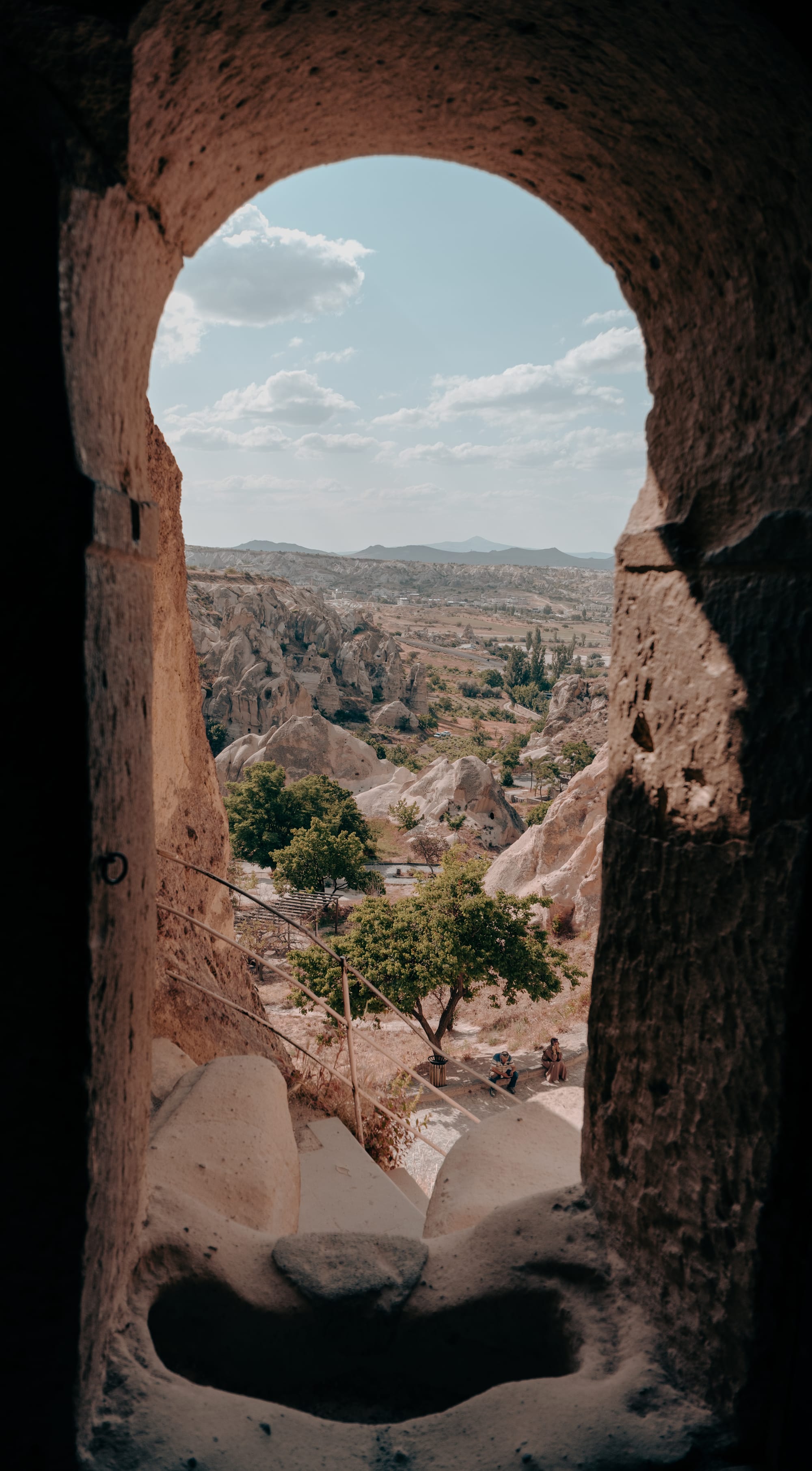
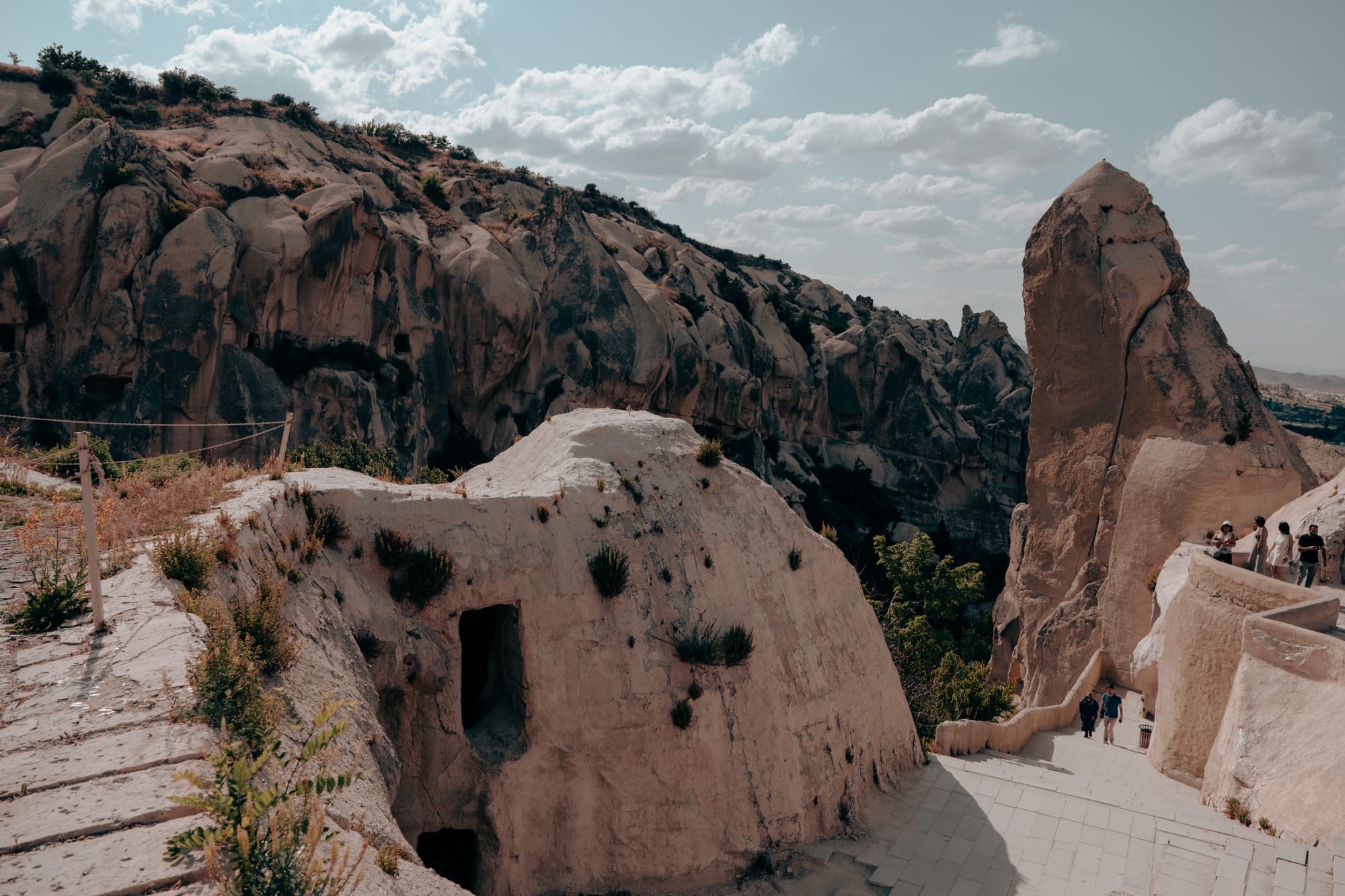
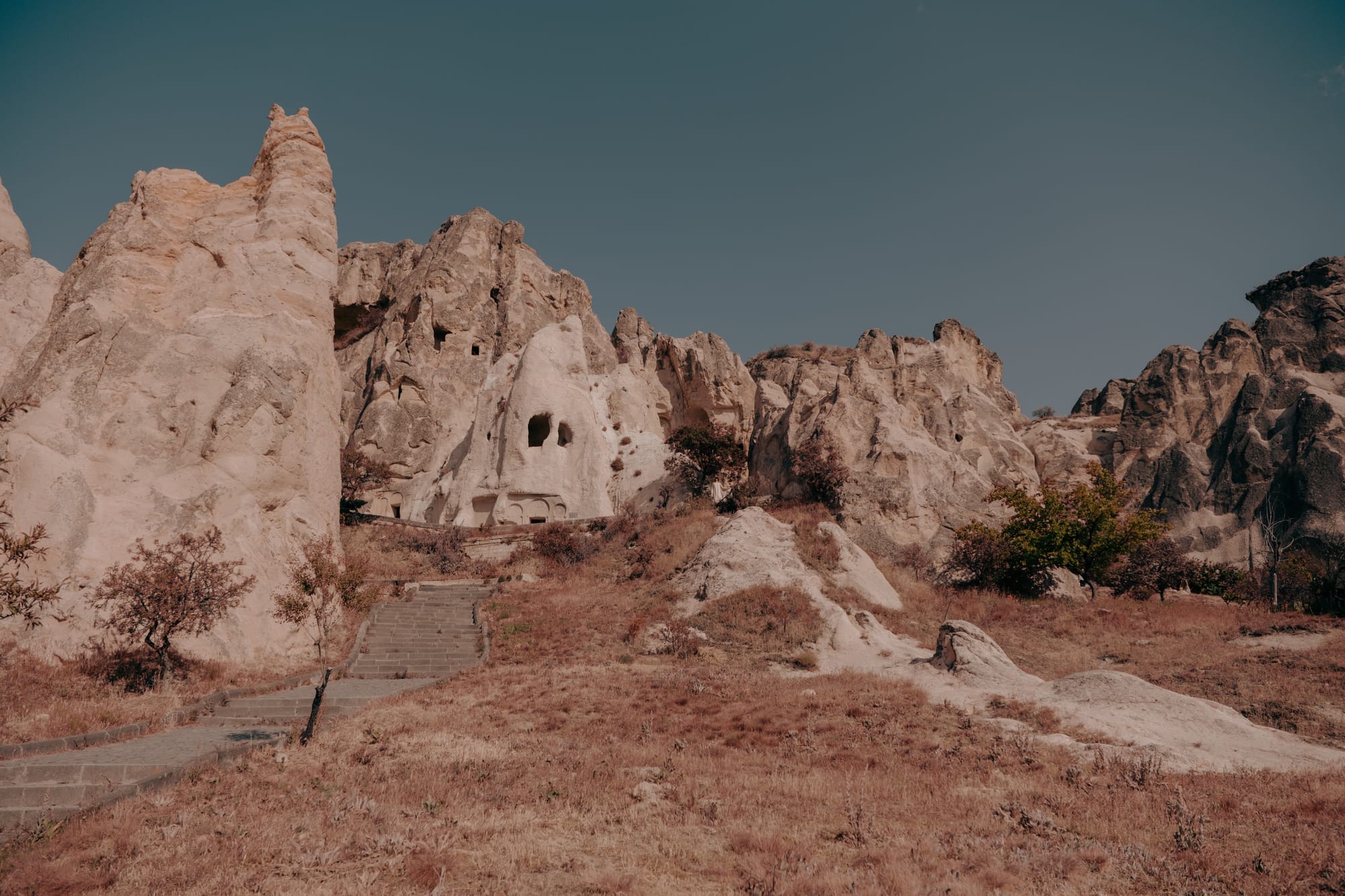
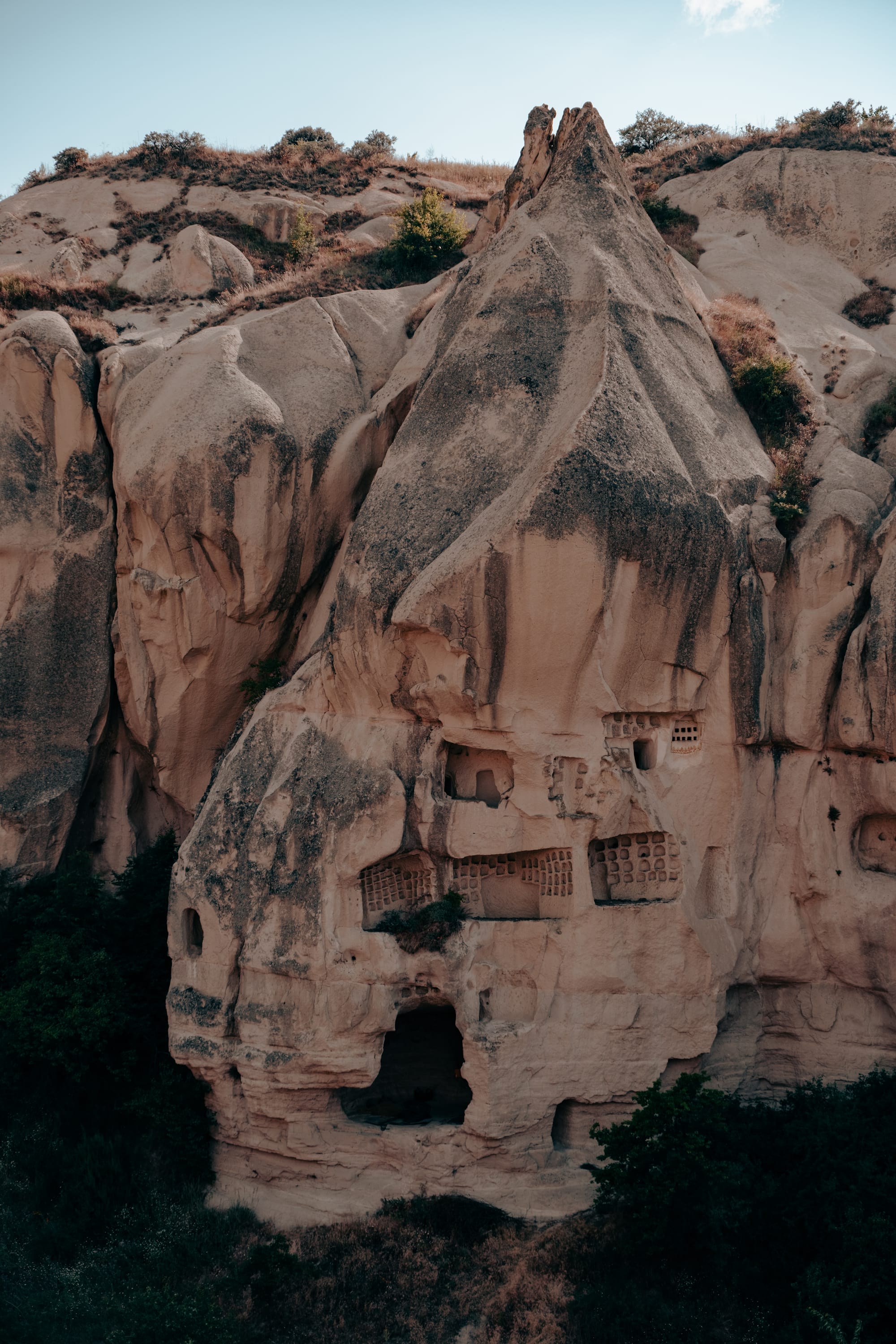
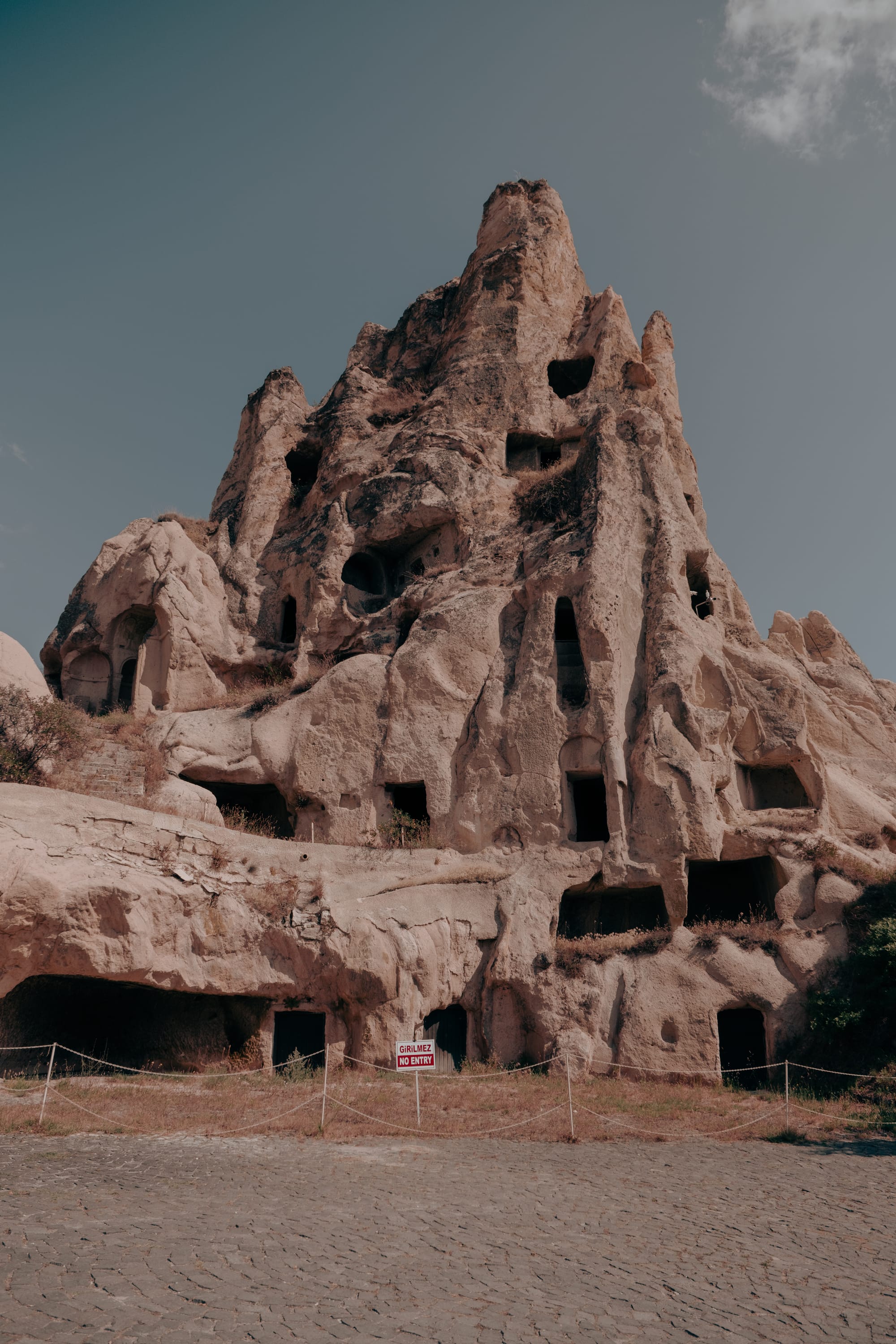
Pigeon house carvings and towering rock-cut monastery structures at Göreme Open Air Museum
From the 9th to 11th centuries, under Byzantine influence, the churches were enriched with elaborate frescoes depicting scenes from the Old and New Testaments, the lives of saints, and theological symbolism. These works served both devotional and instructional purposes for the community.
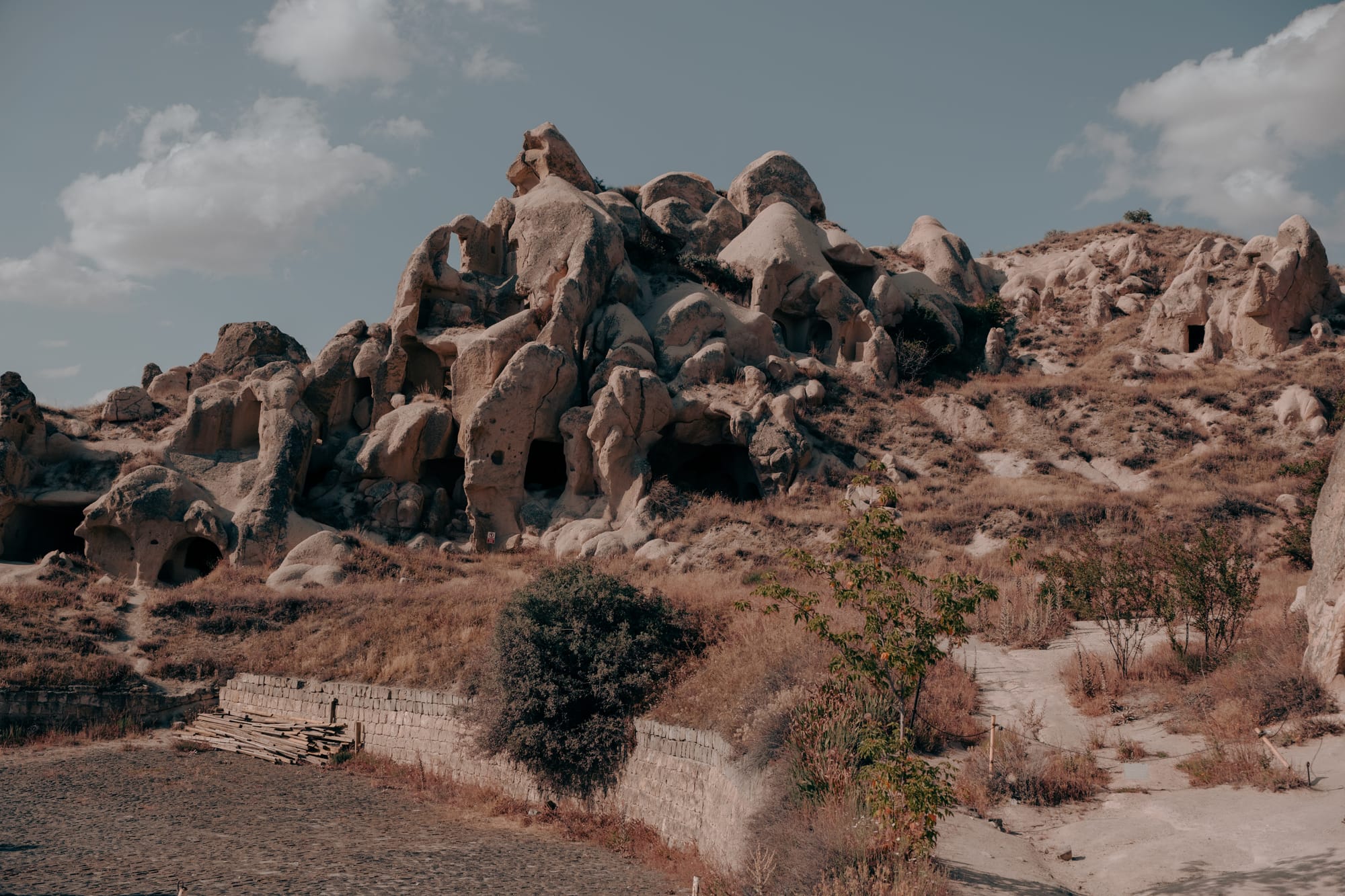
The area remained active into the Seljuk period, adapting to political and cultural changes, before eventually being abandoned as a monastic hub. Today, the preserved churches stand as a testament to a unique fusion of faith, art, and architecture in Cappadocia.
The layout and highlights
The museum is an open valley dotted with rock-hewn churches and monastic spaces connected by winding paths. Interpretive signs mark each site, giving historical and artistic context.
The dark church (Karanlık Kilise)
The Dark Church’s minimal natural light preserved its rich, colorful frescoes remarkably well. Built in the 11th century, it contains vivid scenes like the Last Supper, Crucifixion, and Resurrection.
The apple church (Elmali Kilise)
Dating to the 11th century, the Apple Church has a cross-in-square plan with a central dome. Its frescoes portray Christ Pantocrator, archangels, apostles, and narrative cycles from Christ’s life.
The snake church (Yılanlı Kilise)
This church’s name comes from a fresco of Saint George slaying a serpent-like dragon. It also features depictions of Saint Theodore, Saint Helena, and the True Cross.
The chapel of Saint Barbara
Carved with simple red ochre patterns, this 11th-century chapel reflects symbolic art of the early Byzantine period.
Monastic complex and refectories
Rock-carved dining halls, kitchens, and living quarters show the communal lifestyle of the monastic community.
The artistry of the frescoes
The frescoes range from simple red ochre outlines of the 9th century to the intricate, full-color Byzantine style of the 11th and 12th centuries. Early works often used symbolic forms to convey Christian themes, while later pieces incorporated realistic figures, architectural backgrounds, and dynamic movement. Artists employed natural pigments from local minerals, ensuring the frescoes’ lasting vibrancy. Photography is prohibited inside, so you'll have to visit to see them for yourself.
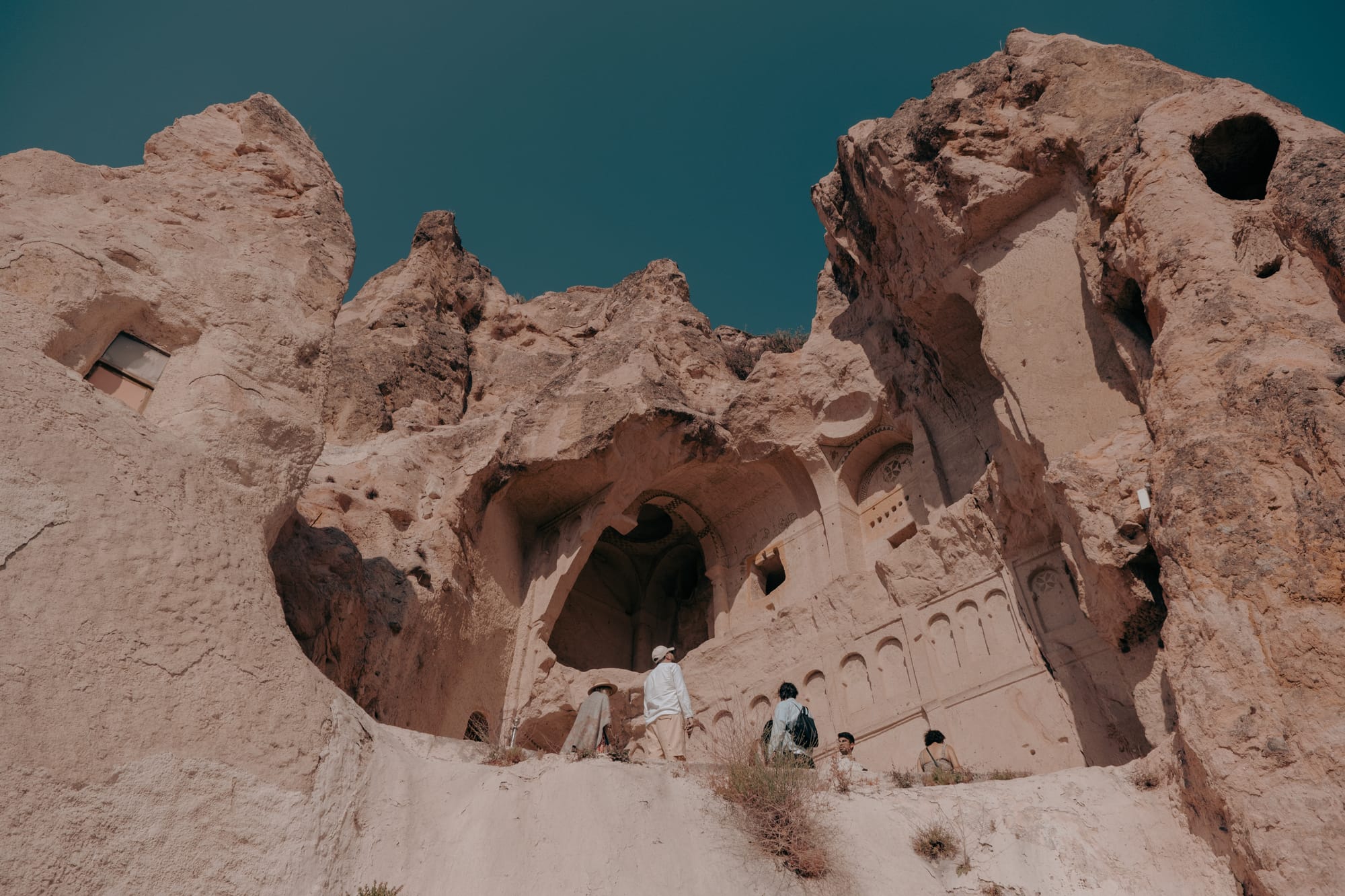
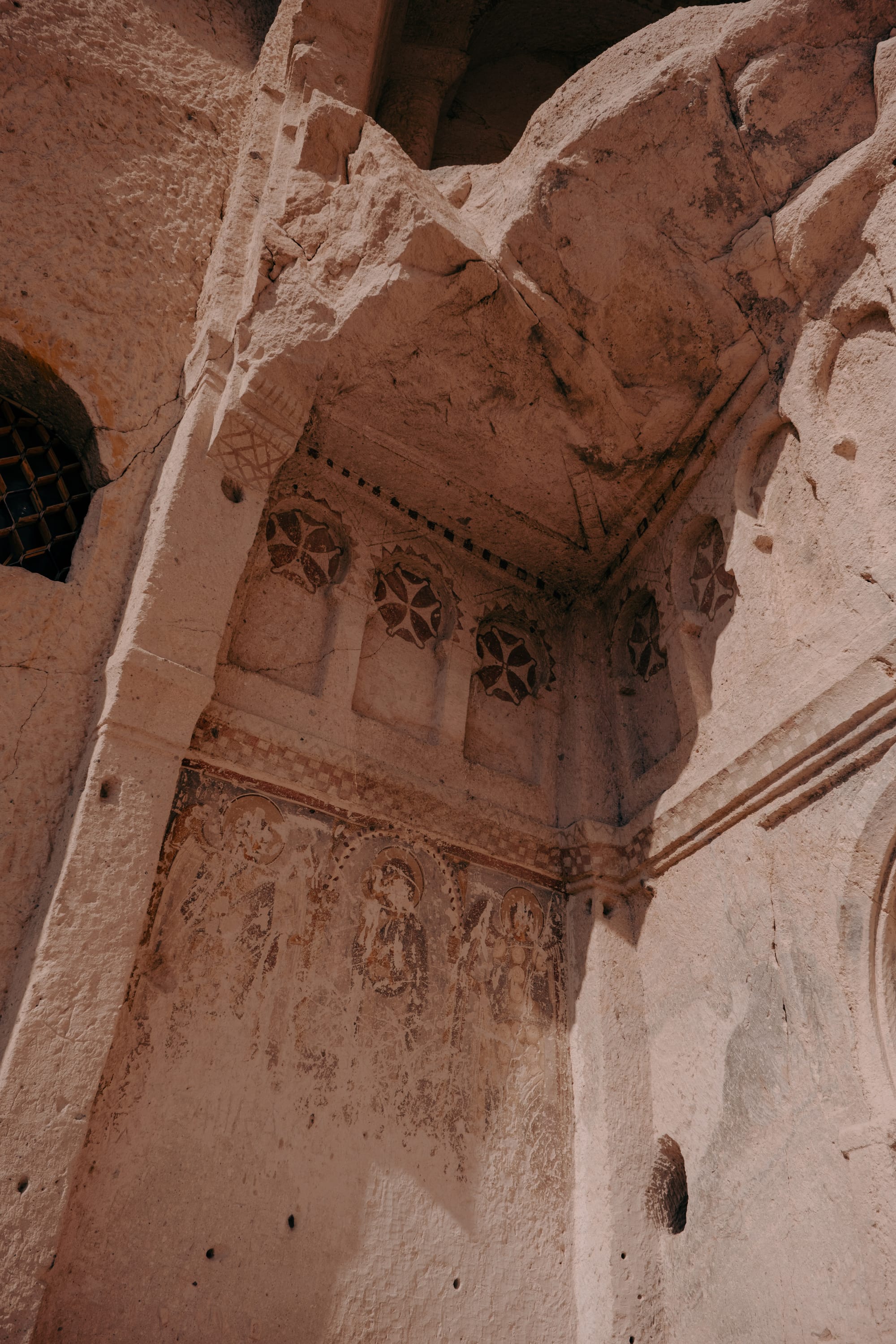
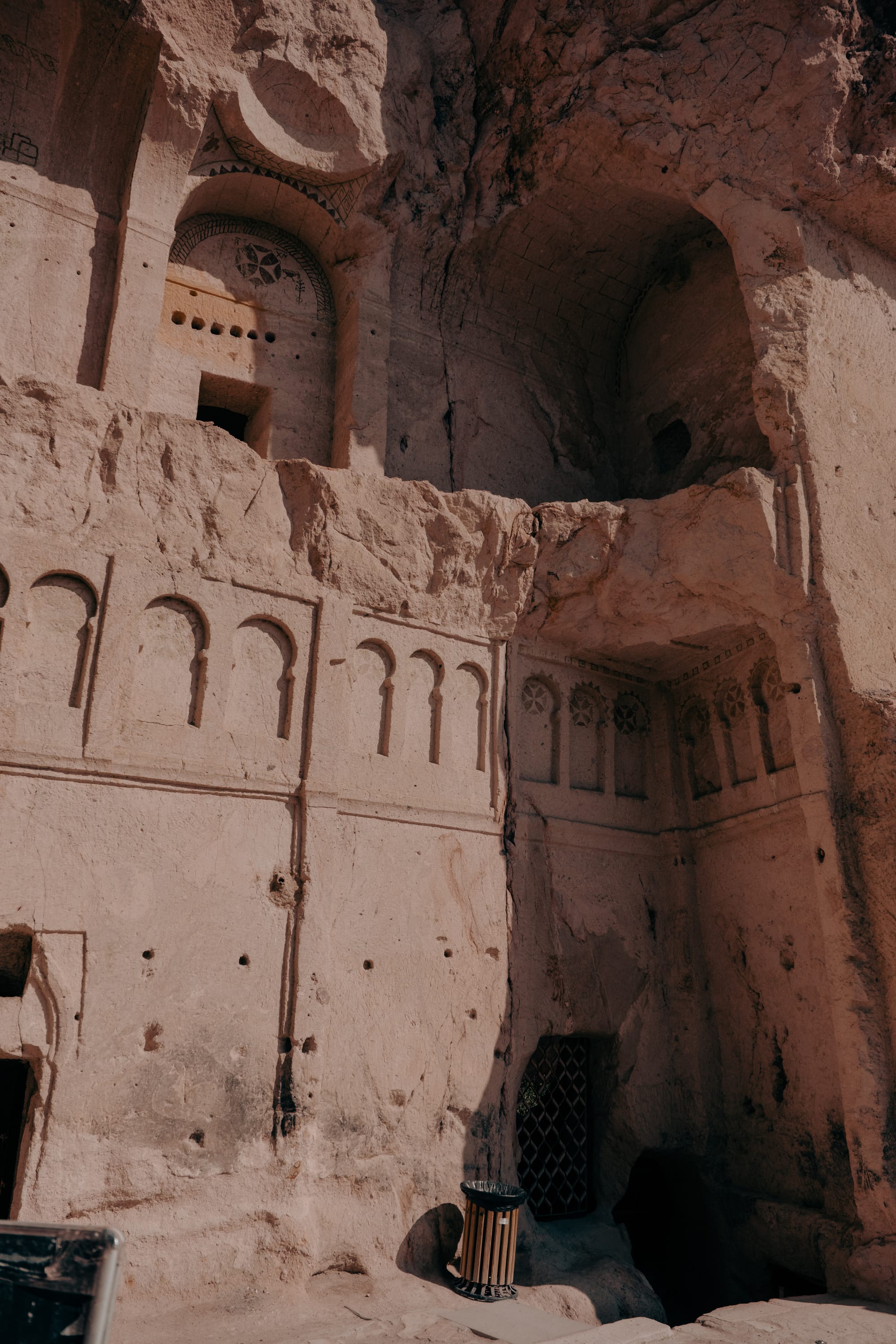
Detailed carvings and faded frescoes inside a rock-cut church at Göreme Open Air Museum
Many frescoes narrate biblical events in sequence, designed for both spiritual contemplation and teaching. Christ Pantocrator dominates domes, saints stand in solemn rows along walls, and narrative scenes bring scripture vividly to life.
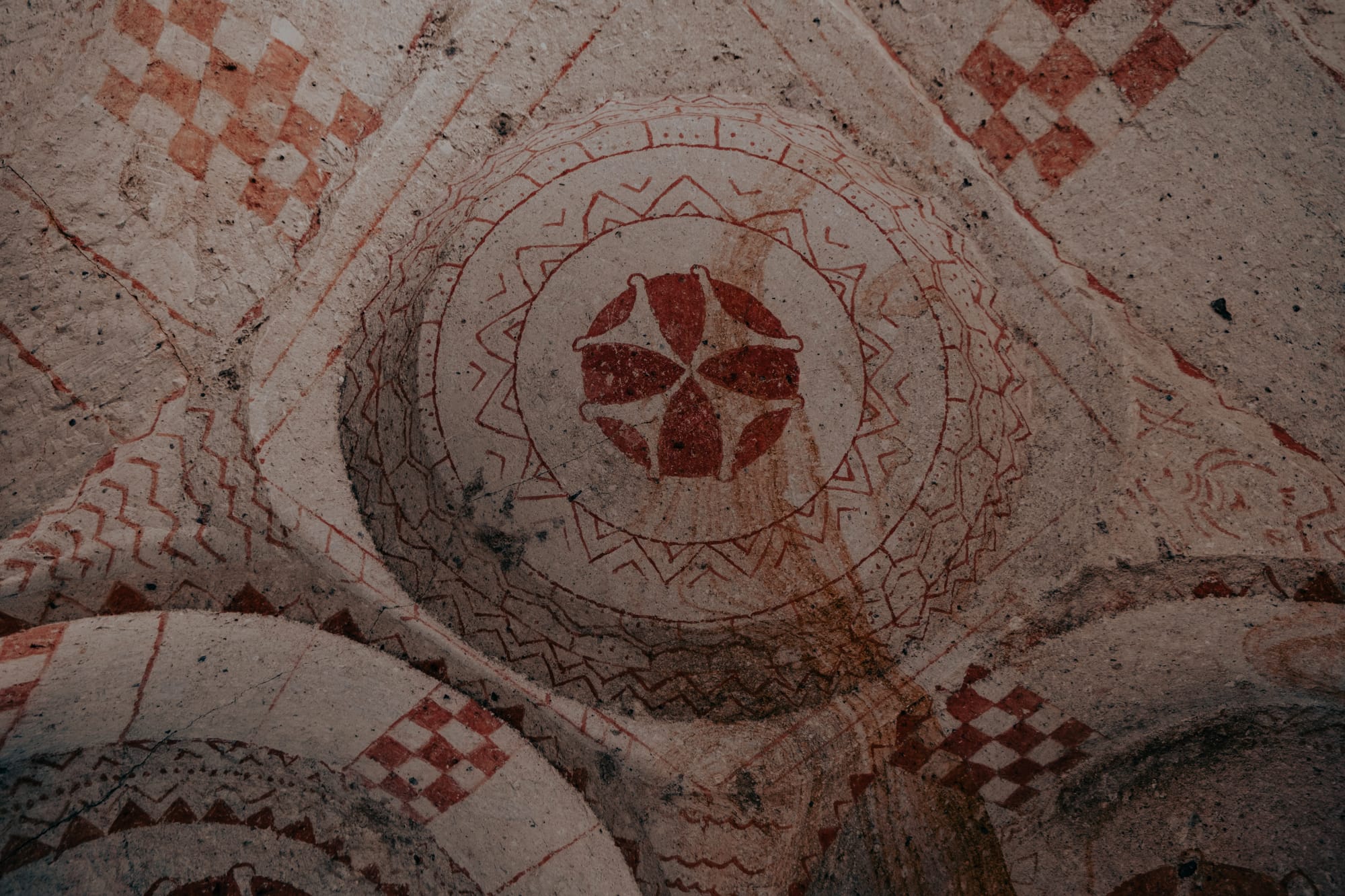
The combination of artistry, theology, and environment creates a profound visual and spiritual experience that continues to inspire visitors today.
Visiting Göreme Open Air Museum
While it’s possible to explore independently, visiting with a guided tour enriches the experience, providing insight into the art, history, and significance of each structure. The combined Red and Green Tour is an efficient way to see the museum and other Cappadocian landmarks in one day.
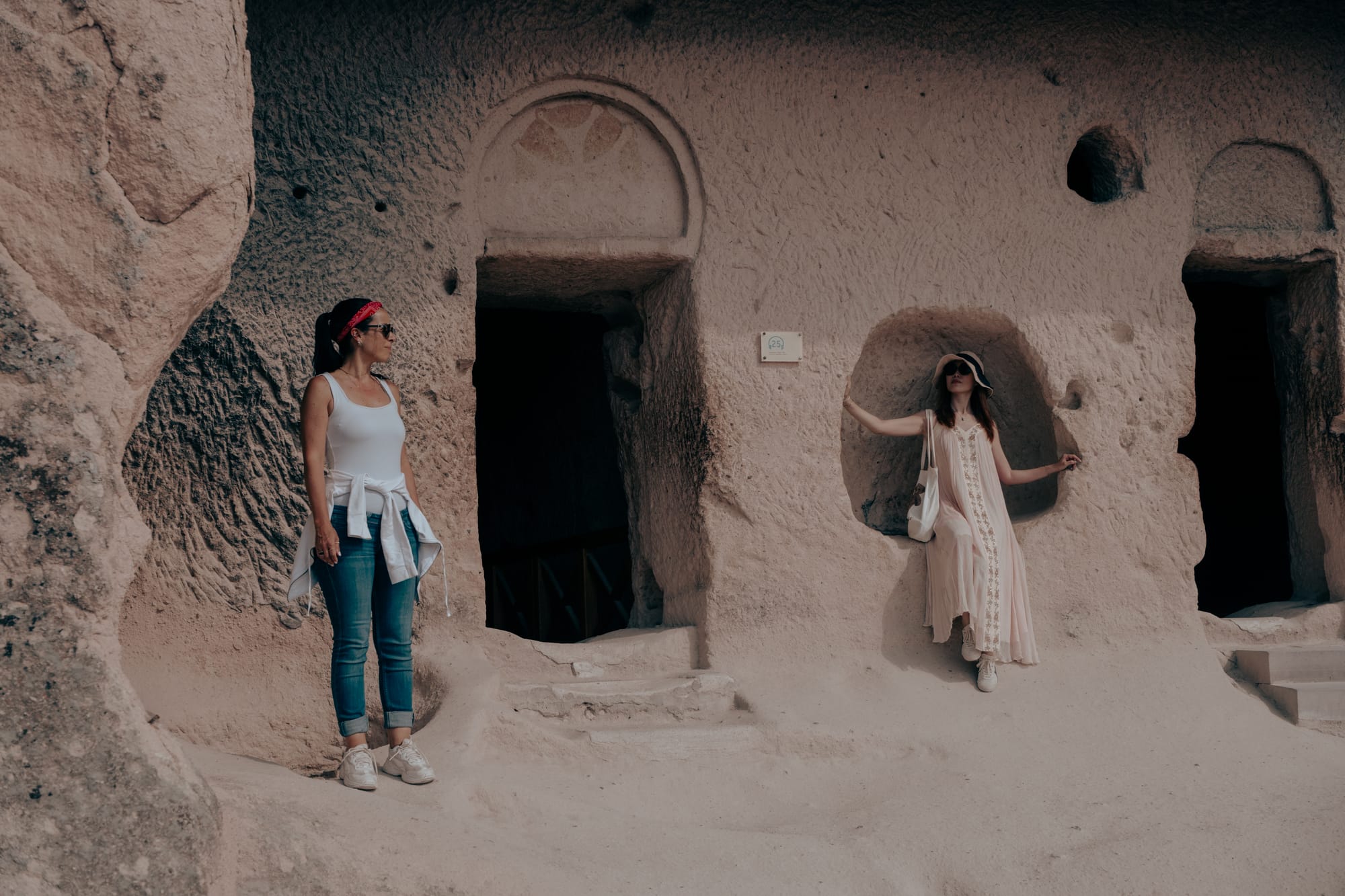
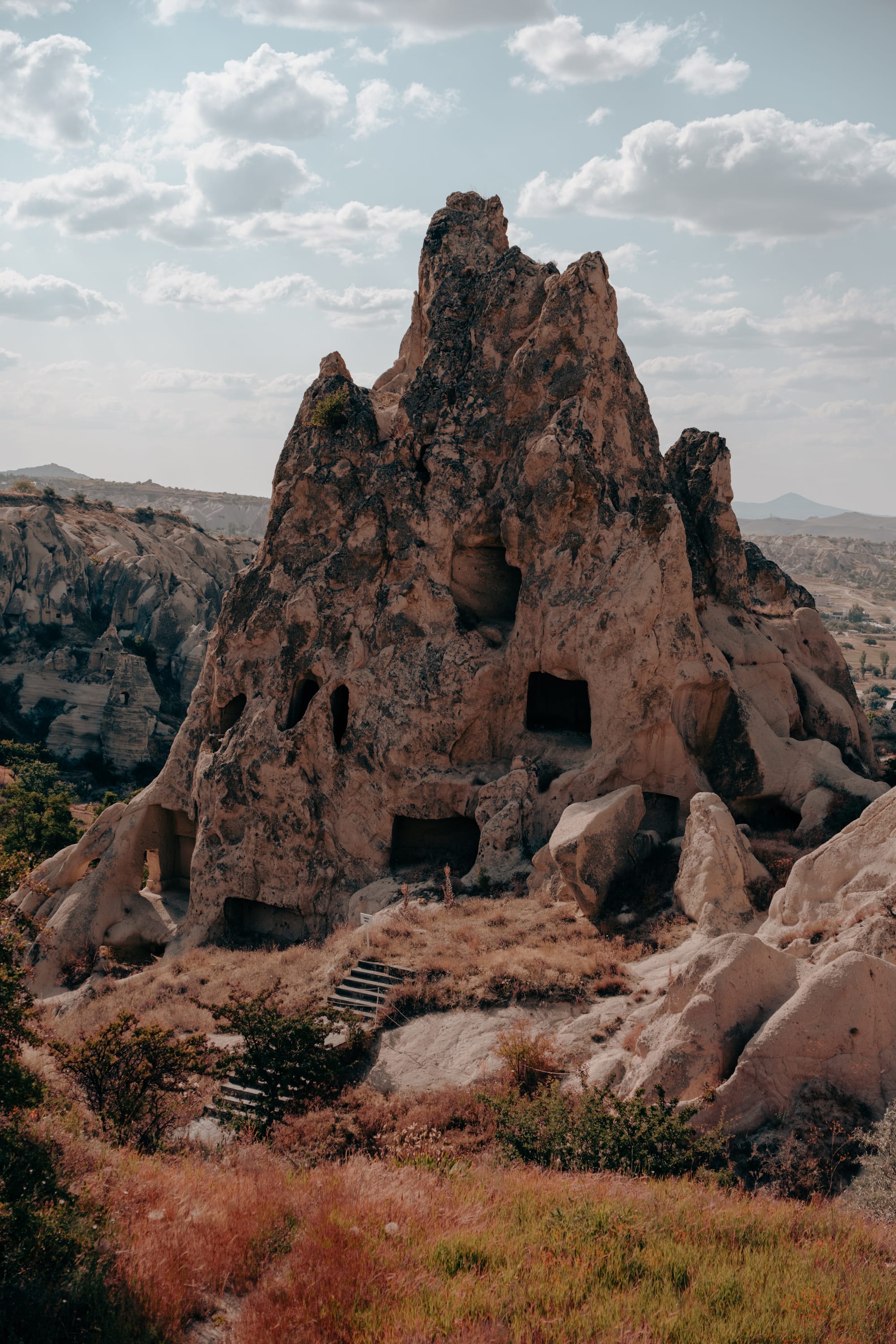
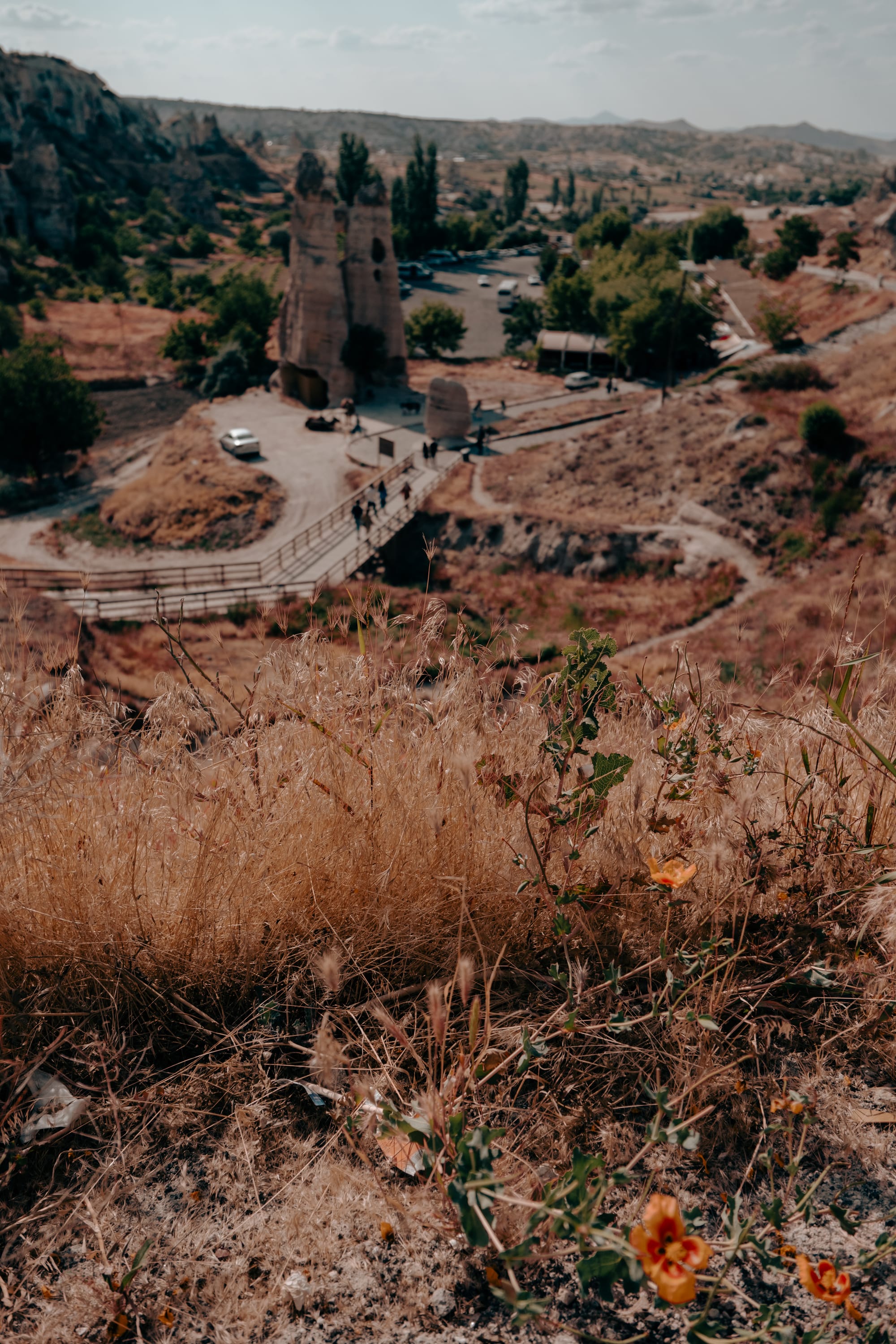
Towering rock formations and panoramic views at Göreme Open Air Museum
If you want to follow in our footsteps, check out the exact tour we booked here. It’s a comprehensive, stress-free way to explore one of Cappadocia’s most iconic landmarks, and it also stops at Monks Valley, Özkonak Underground City, and Avanos for a live pottery demo by local artisans.






